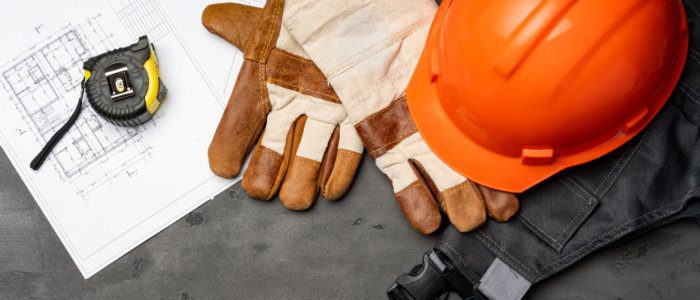Contractor fleet and equipment management

3 minute read
As a small contracting business, you may think you’re impervious to theft or accidents. Think again. As a business owner, it’s important to evaluate your risks, exposures, and liabilities, especially as things change within the construction industry.
Key risks to consider as a contractor managing a fleet and equipment
Where you park:
If you’re a contractor with a work vehicle that gets taken home at the end of each day, it’s vital that you know the risks you’re exposed to when you park.
It is important to park your vehicle in a safe location, especially if you have costly tools, equipment, or materials that you’re responsible for. Here are some key considerations:
What if you have multiple projects on the go and your tools have been stolen? You’ll be unable to finish projects and your business will suffer in multiple ways.
What if you keep specialized equipment in your truck that needs to be stored inside during winter months, so it doesn’t freeze? Replacing equipment that is vital to your business can be costly.
Here are some tips to keep in mind when you park your work vehicle:
Ensure all doors are locked and windows are fully closed.
Park in a well-lit visible area, ideally where there is controlled site access.
Utilize visible or audible security devices that can deter theft, such as an alarm, steering wheel lock, brake pedal locks, tire deflators, and more.
Is your work vehicle a pickup truck or cube van? Although they are not commercially rated, it’s being used for business, so it’s important you have commercial auto insurance. Not only does it protect employees that may drive your vehicle and passengers, it covers things that your personal auto insurance policy does not.
Who you hire:
For some projects you may need help from a subcontractor or tradesperson. A tradesperson might be excellent at their job, but if they have a terrible driving record and need to drive materials to and from a jobsite, this is a risk you may not want to take. It’s important to consider the driving history of a tradesperson before you hire them, as you may end up paying for any losses as a result of their poor driving. If you do hire someone that isn’t the best driver, one way to accommodate that is to assign them to a two-person team or crew. This way, they don’t have to do any driving.
Equipment protection:
Every year in Canada, tens of millions of dollars’ worth of tools and equipment are stolen from contractors and construction sites. Less than 25 per cent of stolen equipment is ever recovered.
If you’re a contractor or subcontractor that uses your own tools and equipment, it’s important to consider how your tools are being stored and protected when they aren’t in use.
Do you ever leave your tools and equipment at jobsites overnight? It makes sense if you’re going to be back the next day to continue the job and don’t feel like lugging all of your equipment back and forth. It may not seem like a big deal to leave your equipment and tools at a site, but construction sites can be vulnerable to theft.
Not all thefts are preventable, but contractors can make it more difficult for thieves by doing the following:
Having well-lit job sites
Securing equipment and tools in an enclosed building with alarms
Utilizing lock boxes with hardened locks (hidden shackles)
Disconnecting batteries and ignition fuses at the end of a workday
Having identifying marks on tools and equipment (numbers or a company logo)
Tracking vehicles or equipment with a GPS device, transponder, or RFID (radio frequency identification technology)
When tools and equipment are stolen, there are multiple consequences, ranging from project delays to an increase in project costs and late fees.
Ensure you’re protected
As a contractor, subcontractor, or professional in the skilled trades working on a construction site, there are a lot of moving parts you are responsible for. Knowing the risks associated with your equipment and fleet are vital, so you can figure out what steps you need to take against them.
But even if you take all the necessary precautions, there are no guarantees that tools and equipment won’t get stolen, or something won’t go wrong with your fleet. That’s why it’s important to ensure your business has the coverage it needs should something go wrong. Learn more about contractors insurance and how it can help protect your business.
This blog is provided for information only and is not a substitute for professional advice. We make no representations or warranties regarding the accuracy or completeness of the information and will not be responsible for any loss arising out of reliance on the information. Terms, conditions and exclusions apply to coverage. See policy for details.






